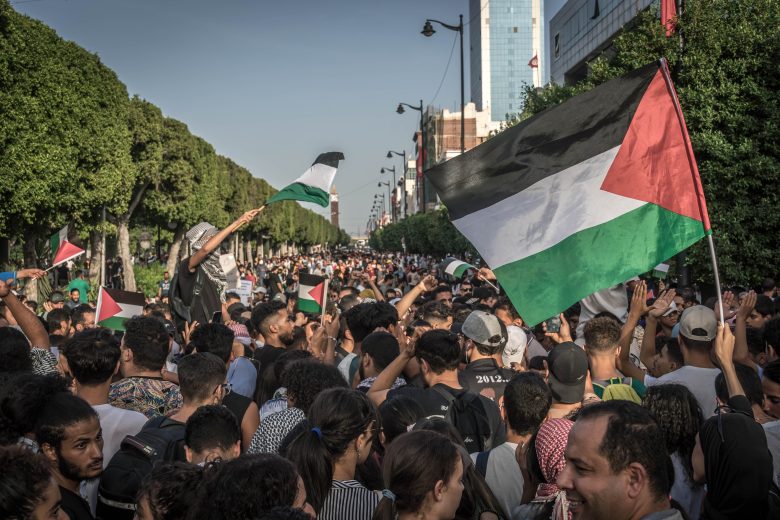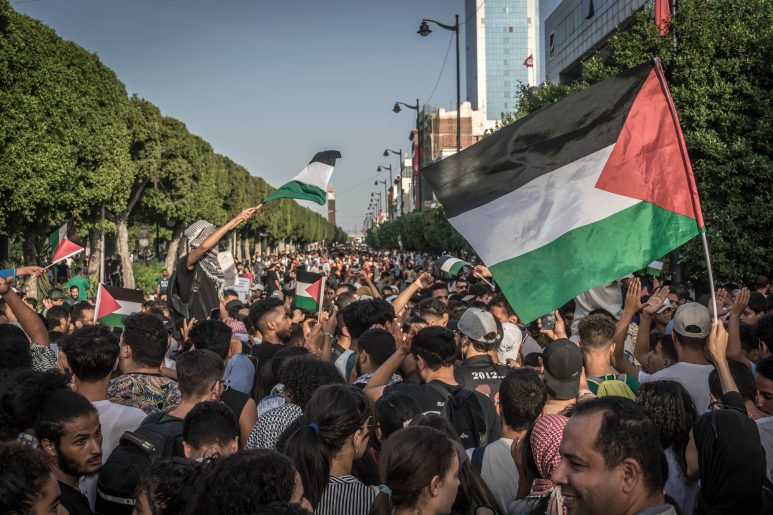MDI: How are Tunisian media reporting the war between Hamas and Israel?

Zbiss : Freedom of expression and access to information are being increasingly restricted in Tunisia. We are living in very difficult times. Journalists are regularly targeted, harassed, sometimes physically, and jailed while doing their work.
President Kais Saied in September 2022 decreed a law imposing prison terms for spreading online ‘false’ information or ‘rumours’. This is used to shut us down.
Self-censorship has returned, the public media is again the mouthpiece of the regime, and the freedoms we gained with the 2011 revolution are gone. But there is one subject we are free to talk about, and that is the war between Hamas and Israel.
MDI: Can you describe it more”?
Zbiss : It is being exploited by the people in power, who are using it to mobilise the population and divert their attention to an external issue. Internally, the country is bankrupt and no one dares to freely debate the responsibilities of the economic crisis.
The Middle East conflict has always been a passionate issue for Tunisians, but even more so today because of the media’s fascination with it. The evening news bulletin, which is very popular on Al-Watania, the state-run broadcaster, is mostly about it.
All our hopes for democracy, the respect for diversity and inclusion and economic development have been dashed, leaving us with instability and fears of violence and social tension. Especially since 7 October, the war between Hamas and Israel has become an element of the presidential election campaign and a way for the media to let off steam.
MDI: Is the coverage of the conflict balanced?
Zbiss : Tunisian media don’t have correspondents in Gaza and Israel and rely on satellite networks and pan-Arab channels. They recycle news and invite so-called experts to give their analysis. The tone is passionate, the insights are not balanced, there is rarely background information and research on the relevant actors, including Hamas.
In their coverage of the Gaza war, journalists have the impression that they have a space for journalistic freedom, but that freedom is exempt from basic journalistic requirements.
MDI: Freedom House described Tunisia as “partly-free” in its 2024 report, do you agree with this ranking?
Zbiss : I wrote a policy paper for the German Friedrich-Naumann-Foundation for Freedom in November 2023 about freedom of expression in Tunisia after 25 July 2021, which marks the day of the coup led by President Saied.
The paper was ready for publication after October 7th, but it was not shared with the public as I had hoped. The pro-Israeli position of the German Foundation and the expected negative reaction of the Tunisian government to the paper forced us to keep a low profile. Instead of a press conference, we met in a small public space to share our work.
There is no doubt that Tunisia is now “partly-free”, and I don’t see how this will change with the upcoming presidential elections.
Photo Credit: Shutterstock
Disclaimer:
The views and opinions expressed in this article are solely those of the author and do not reflect the official policy or position of the Media Diversity Institute. Any question or comment should be addressed to editor@media-diversity.org

